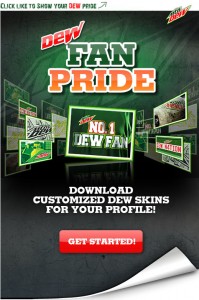It’s the time of year again to be thankful. And by that I mean, of course, grateful to be better than the next guy. And in the great big Darwinian marketing campaign, Christmas cards are the ultimate form of domestic direct marketing. They sell lifestyles. I’m not sure if anyone has ever sent out a Christmas card to genuinely wish somebody well, but, from what I can tell, all holiday greeting cards are designed to communicate one of three ideas:
We Are So Much Happier and Better Than You
We Are So Totally Fucking Awesome
 |

|
You Have No Idea
As a personal domestic marketing rule, my family only sends out our own Happy Holidays card if it can simultaneously fit in all three of those categories above, as it did in 2007.

Child's Simple Gesture Captures Holiday Spirit
Really, we’ve always been our own brand, but now there are more ways than ever to market ourselves. Sure, we still don’t have jet packs, but now we each get our own brand page on the Internet, filled with all the stuff that’s us. If you’re alive today, you’re selling something–usually a bunch of stuff. The differences between what a small business did on the Internet in 1999 and what an individual does there today is remarkably similar. Between 2000 and 2010, I was frequently an entire marketing department. I thought up promotions, checked the numbers and inventory, created ad copy and/or web graphics to promote said promotion, linked graphics to products on the site, and finally “utilized social media” to spread the word. Nearly all of that now happens entirely inside social media.
The only real difference between a corporation marketing its brand and a person logged into Facebook is that one isn’t getting paid. Consider the new feature on the Facebook page for extreme beverage, Mountain Dew. It lets its minions consumers “download customized Dew skins,” magically turning your Facebook page simultaneously into a slammin’ ad for green high-fructose corn syrup and your own desperate need to belong.
Lest you get all excited by the added attention, though, don’t forget your place. The great thing about the new social media is that even the sorriest among us can finally get invited to the hipster party for the low, low price of just our personal data, our Christmas card material. All Pepsi needs from you is your e-mail address, your profile description, birthday, hometown, location and work history and your photos, and in return, you get total V.I.P. treatment, meaning some sweet Mountain Dew graphics to decorate your Facebook page. Sort of like a pyramid scheme with no chance to advance toward the top. Apparently, the deal seems too good to be true for some people, though. Almost 6.3-million people like Mountain Dew.
In fairness, they’re probably totally rad graphics you can use to decorate your page, so maybe it’s a deal. I mean, human life is still worth less than $10-million dollars, but turning over your personal information and agreeing to shill gets you some attention from a company, and the digital equivalent of the stickers you get for being brave at the doctor’s. Score.
Understanding our place as a brand has become increasingly important in light of recent developments that suggest we’re already involved in relationships with brands, whether we know it or not. Might as well shill for something you love.




